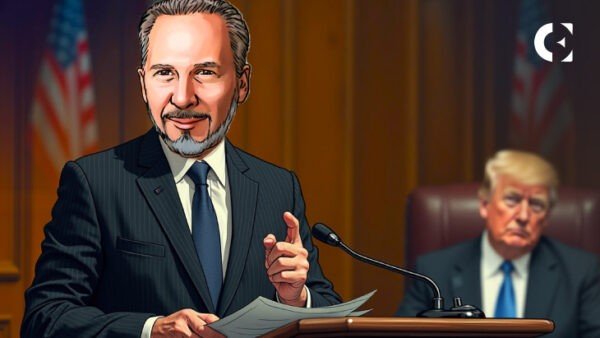The U.S. economy added 139,000 jobs in May, a figure that beat market expectations but drew sharp criticism from economist Peter Schiff, who warned the growth is occurring in the wrong sectors. As Schiff advocates for a return to traditional economic principles, his views now stand in stark contrast to a new government strategy that embraces Bitcoin as a national strategic asset.
Schiff pointed to Bureau of Labor Statistics data showing that job gains were concentrated in non-productive sectors, with healthcare adding 62,000 jobs and hospitality adding 48,000. Meanwhile, the domestic manufacturing sector shed 8,000 jobs, its largest decline this year.
Related: Elon Musk Warns U.S. Debt Interest Imperils Spending; Bitcoin Solutions Proposed
Schiff argues this dynamic, where service-sector workers spend their wages on goods the nation no longer produces, fuels inflation, worsens trade deficits, and weakens the economy.
Schiff’s Prescription vs. a New Digital Strategy
Replying to Coin Edition, Schiff prescribed a course of higher interest rates, deregulation, and cuts in government spending. He contends these measures are necessary to curb consumption, incentivize savings, and drive capital investment back into America’s goods-producing industries.
Are you suggesting this trend will fuel more inflation? And in your view, what corrective steps should be taken to address the imbalance between productive and non-productive job growth?
— Coin Edition: Your Crypto News Edge ️ (@CoinEdition) June 6, 2025
To Coin Edition’s query on the role of Bitcoin in U.S. financial policy, Schiff pointed out that the timing aligns with wider discussions on the use of digital assets in national reserves. The debate over Bitcoin’s function as a hedge against inflation and its comparison to gold continues to draw attention within financial and political spheres.
Appreciate the deeper analysis, Peter Schiff.
What’s your view on the idea of the U.S. holding Bitcoin in reserves? Could it play any role in addressing inflation long-term?
— Coin Edition: Your Crypto News Edge ️ (@CoinEdition) June 6, 2025
What You Need to Know About America’s Bitcoin Reserve Plan
On March 6, 2025, President Donald Trump signed an executive order establishing a U.S. Strategic Bitcoin Reserve under the newly enacted Bitcoin Act of 2025. Over a period of five years, the reserve aims to acquire up to 1 million Bitcoin and will hold them for at least the next two decades. The initiative wants to establish Bitcoin as a strategic financial hedge and long-term store of value.
Related: Bitcoin Rally Faces Headwinds as Matrixport Report Points to Weakening U.S. Economy
The reserve’s funding will come from a combination of forfeited digital assets, surpluses from the Federal Reserve, and revised gold certificates. The Department of the Treasury will manage this effort, which will use blockchain verification along with offline security measures. Some states, including New Hampshire, Arizona, and Texas, have enacted laws to create their own strategic Bitcoin reserves. In contrast, eight other states, such as Florida and Wyoming, have dismissed similar proposals due to worries about volatility.
Disclaimer: The information presented in this article is for informational and educational purposes only. The article does not constitute financial advice or advice of any kind. Coin Edition is not responsible for any losses incurred as a result of the utilization of content, products, or services mentioned. Readers are advised to exercise caution before taking any action related to the company.
Read the full article here










